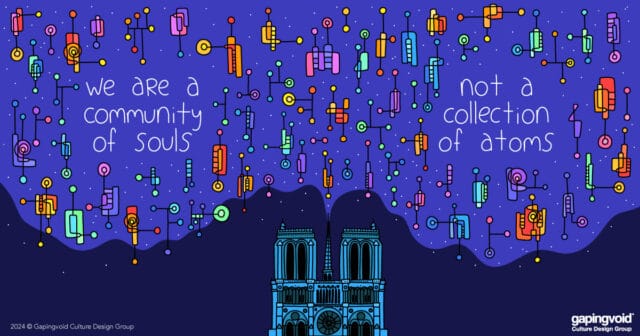
[Click on image to enlarge/download/print etc. Licensing terms here etc.]
I was thinking about Search and Social Media earlier today. Call it “Google vs Facebook”, if you will…
Let’s say you’re going to Phoenix next month with your spouse. Let’s say you’ve never been there before, nor do you know anyone who lives there.
Let’s say you’re looking for a nice Vietnamese restaurant in Phoenix to take your spouse to one evening.
So I’m guessing what most people would do is google “Vietnamese Restaurant Phoenix”, and see what The Holy Algorithm comes up with. You might luck out, you might not.
As a blogger with a pretty big audience, I have found a better way. I just write my dining plans on the blog and/or on Twitter and/or Facebook, and invariably I’ll get a couple of good recommendations pinged to me within hours, sometimes minutes. And because I know these folk, or at least, they know me and read my blog, there’s a certain amount of trust and bonhomie that comes with the recommendation.
But like I said, I have a pretty big audience, so this works pretty well for me. But for someone with a smaller readership, you could question how well this approach would fare for them.
So I’m thinking about how Facebook and/or its competition could help fill the gap.
If if they can, even partially, then Google should be concerned… because at the end of the day, all search begins and ends with people, not algorithms.
[UPDATE:] Nice comment from C. C. Chapman:
Not sure if Facebook is the right vehicle for this, but I completely agree that it is more about the people and recommendations then anything else.
I know Skype has been trying to integrate this kind of capability into it, but I never think of using it when a quick tweet or blog post is more effective.
I wonder if things like Spock or Mahalo will help bring this close. Hmm….
Yeah, it’ll be interesting to see what Mahalo does with this space. But I don’t how much they’re planning to build their Search via paid employees, versus a Wikipedia-like social network. Jason?



